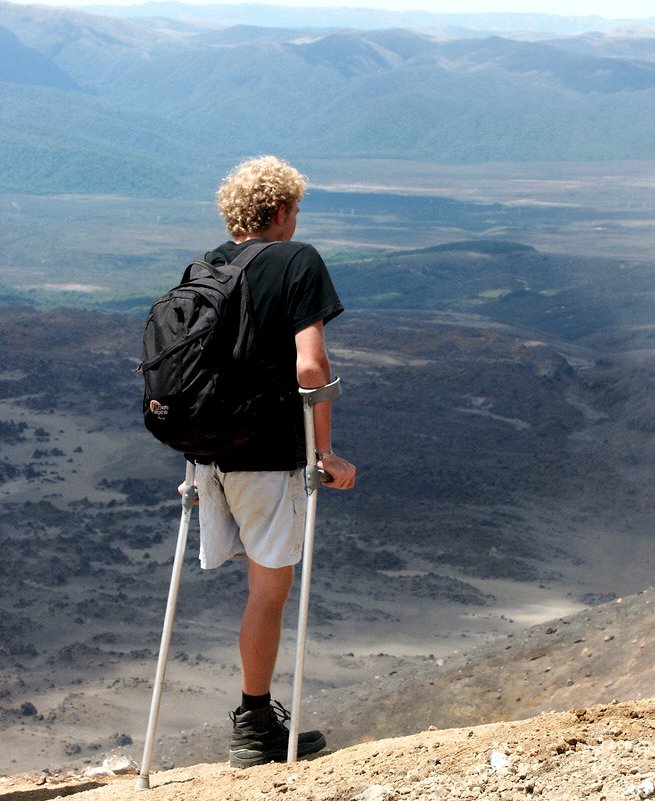Sudden Disability

A motorcycle accident, a car crash, a skiing accident, a fall, can result in long-term disability, the amputation of a limb or spinal cord damage. Suddenly, the world is chaotic and ambiguous: you are an actor in a new body. The script hasn’t changed but you have entered the scene as a new performer. Amputation, SCI are disorienting, bewildering, the change profoundly intimate. The old certainties, the old assumptions which guided your life, are shaken.
A young amputee commented, ‘The truth is that physically it’s easy for a person to be cured. The wounds close. But inside, with this leg, can you imagine what my heart looks like?’
The switch from ability to disability is a rite of passage, a period of separation in the protected world of the hospital followed by transition and eventual reincorporation into the everyday.
You might be concerned about relationships, sexuality, about accepting your ‘new’ body, accepting the idea of being disabled; about the attitudes of family, over-protective perhaps, friends or strangers, awkward, embarrassed. About the future. Feeling you have lost control of your life. All of these concerns are normal.
But it can be helpful to have someone to talk to, someone with whom you can share your fears, your hopes, without being concerned whether they might be upset or because they too are affected by what has happened to you. Someone who can help you gain a sense of perspective, help you get to a point where you are not dominated by your disability, where you can see it as a challenge, not a barrier. Someone who can help you develop a new self-image, redefine your goals.
A young professional footballer who lost his leg in a training accident, has as his motto: ‘Don’t think of what you were, but of what you are, and of what you aspire to be’.
For many people, after a period of adjustment, their disability can become a positive experience. That can be hard (very hard) to believe when you’ve just been discharged from hospital, but they feel stronger, more appreciative of what is really important in life. Andreas Onea, a paralympic swimmer, has said that without his disability, he’s an upper limb amputee, ‘I wouldn’t be the person I am today, and wouldn’t have achieved what I have’. And Aaron Ralston, whose experience was made into the film 127 Hours, says, ‘I learnt what is worth living for. My life is inherently richer with friends and family. I didn't lose anything back there - I gained a life.’
An edited version of my paper on the impact of sudden disability and the role of counselling, is available electronically here, or on request.
Useful Links
- Coping with Your Amputation
- http://www.cdha.nshealth.ca/amputee-rehabilitation-musculoskeletal-program/patients-families-amputee-rehabilitation/coping-your-
- How does Counselling Help People with Amputation?
- http://www.oandp.org/jpo/library/2002_03_102.asp
- Limb Loss: Counselling
- http://www.douglasbaderfoundation.com/bill/information/rehabilitation/counselling
- Spinal Injuries: Emotional Support
- http://www.spinal.co.uk/userfiles/pdf/factsheets/Free_to_download/Emotional_Support_Apr_2011_LB.pdf